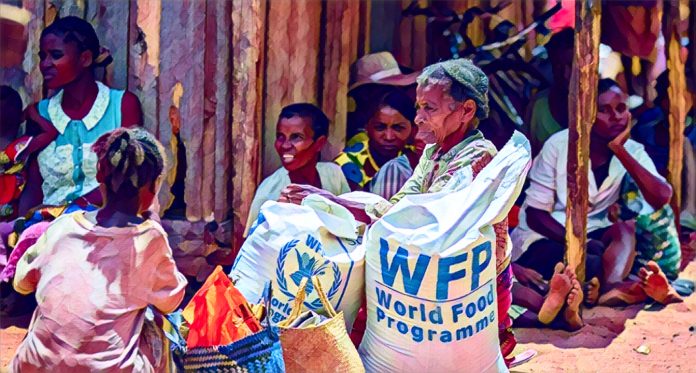Key Points
-
US commits $32.5 million to strengthen Nigeria’s food security system.
-
New funding targets hunger reduction while boosting agricultural resilience nationwide.
-
Support arrives as food prices continue rising sharply across Nigeria.
With Africa’s most populous country facing growing hunger, inflationary pressure, and deepening insecurity that threaten access to food, the United States has pledged new support by committing $32.5 million to improve food security in Nigeria.
According to a report by the Punch news, US officials said the new funding would be used to support smallholder farmers, boost agriculture, and expand programs that help households already struggling with high food prices. Washington’s renewed commitment demonstrates how Nigeria’s food security crisis has escalated beyond a domestic issue, causing international partners to express concern.
The funding focuses on resilience and hunger
The aid package from the US is a component of a larger plan to strengthen Nigeria’s food supply chain and reduce the likelihood of shortages brought on by soaring prices, conflict, and climate shocks. In order to support smallholder farmers, increase irrigation, and implement climate-smart farming methods, the fund’s funded programs will be implemented in coordination with regional partners.
According to a US development official, “food security in Nigeria is crucial for the stability of the country as well as the region.” “This funding demonstrates our dedication to supporting Nigerians in creating a food system that is more resilient and sustainable.”
This new commitment shows a greater understanding that Nigeria’s food shortage crisis has become an urgent priority, even though the US already has a close working relationship with Abuja through development and humanitarian initiatives.
Nigeria struggles with a growing food crisis
Nigeria has one of Africa’s highest rates of inflation, and overall prices are still driven by the price of food. More than 26 million Nigerians, according to UN estimates, are severely food insecure this year, especially in the northeastern regions affected by conflict. Food shortages and insecurity in rural farming areas run the risk of intensifying into more widespread instability, according to analysts.
Recognizing the gravity of the situation, President Bola Tinubu’s administration has implemented emergency fertilizer and grain distribution programs. International assistance is essential because the scope of the need is still far greater than what Abuja can handle on its own.
International partners seek stability over the long term
Additionally, US funding for food security supports international efforts to develop sustainable agriculture in Africa. Such collaborations, according to experts, are essential for protecting populations that are at risk and lowering reliance on imports that put a strain on Nigeria’s foreign exchange reserves.
Although $32.5 million might not be enough to end Nigeria’s food crisis, the financial infusion shows how important outside partners are to stabilizing a vital economic sector. Success for many Nigerians will be determined by how fast and efficiently the assistance reaches the most underserved communities.



